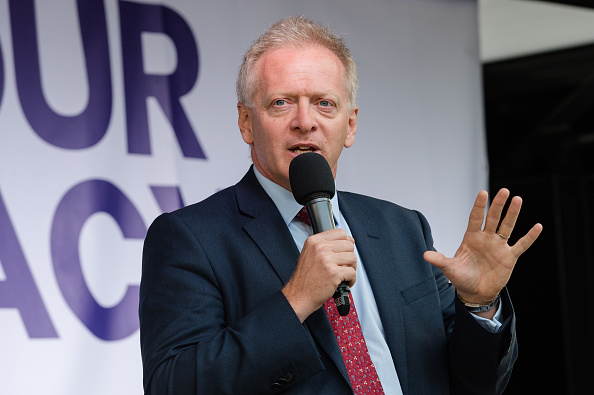PARLIAMENT FIGHTS BACK AGAINST JOHNSON’S “COUP”
September 3 proved to be quite an eventful day in parliament as MPs found themselves fighting against the clock before parliament is to be prorogued on September 11. As such, the members of the House of Commons needed to regain control of the parliamentary Order Paper (the daily schedule of the House of Commons). To do this, an emergency debate needed to be raised to the Speaker of the Parliament (John Bercow) via Standing Order 24.
Former Tory MP, Sir Oliver Letwin raised the motion to debate whether or not parliament can accept a no-deal Brexit. Given the fact that Bercow has vocally criticized Johnson’s decision to suspend parliament, he naturally approved the debate to take place. Those in favor of the motion to block Johnson from taking the UK out of the bloc without a deal argued that in contrary to the government’s claims, it has not made any substantial progress in negotiating with the EU and that the government has yet to find any viable alternative to the Irish backstop. Moreover, the motion would force Johnson to ask the EU for an extension on the Article 50 deadline (which the MPs placed as January 31, 2020, but the EU might choose another date). The motion was then passed with 328 votes to 301, with 21 Tory MPs going against their government by voting in favor of it. Those rebel Tories include senior figures such as former Chancellor of the Exchequer Philip Hammond and they ultimately paid the price for their mutiny as they lost their whip, meaning that they were kicked out of the party. Nevertheless, the passing of the motion meant that MPs won back control of the parliamentary timetable, moreover it paved the way for a bill to block the Prime Minister from pursuing a no-deal.
The next day, MPs started the reading process of the Benn bill (named after MP Hilary Benn one of the sponsors of the bill), if passed then Johnson will have to do one of two things either reach a deal with the EU by October 19 or get parliament to approve no-deal by the same date. In other, Johnson will be forced to get a new deal with the EU and the only way he could get a no-deal is through parliamentary approval. Of course, Johnson could circumvent this by calling a general election to take place on October 15 (something he has said he would do), but to do this he would need the support from 2/3 of the MPs.
The bill passed through the first and second readings, and during the third reading 327 MPs voted for it, while only 299 voted against it, thus it successfully passed through the Commons. The bill was then passed to the House of Lords for their own readings; there was fear that pro-Brexit Lords would try to filibuster the bill by running down the clock in order to give Johnson his power back. Those fears were dashed when the Upper House of Parliament announced at 1:30 AM that it rejects any filibustering attempts for this bill, as a result, the bill will likely go back to MPs soon who will then vote on it again and if it garners parliamentary approval it would then be passed for royal assent.
It should be noted that shortly after the bill passed through the third reading in the House of Commons, Johnson attempted to table a motion for a general election, and 298 MPs voted for it while 56 MPs voted against it, but as it did not pass the 2/3 threshold set under the Fixed-Term Parliament Act 2011 it did not through. It is now being reported that MPs will get to vote on another general election motion early next week.

BLOOD IS THICKER THAN WATER?
Needless to say, the Prime Minister has made more enemies than friends this week. As was previously reported, the 21 rebel Tories were suspended from the party due to their actions. Furthermore, earlier in the week MP Phillip Lee defected from the Conservative party and crossed over to the Liberal Democrats, which is branding itself as the official “people’s vote” party. This simple act made the Tories lose their majority in parliament, and the dismissal of the other 21 MPs has practically made them a lame duck in the House of Commons.
It is no surprise that Johnson wants a general election, he’ll need so that he can obtain any functional majority in parliament. But as it has been previously seen, getting a general election is easier said than done. As the working week is coming to an end, the British government finds itself in another stalemate, but this time the stalemate is highly in the opposition’s (and parliament’s) favor.
As if things could not get worse for Johnson, his own brother, Jo Johnson, has shown his disapproval of the Prime Minister’s actions by resigning from his posts as Minister of State for Universities, Science, Research and Innovation and MP for Orpington, proving that when it comes to national interest blood isn’t thicker than water.








